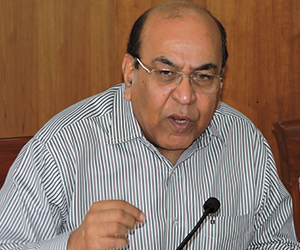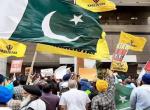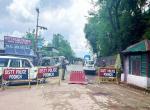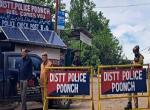Two years after the emergence of Daesh the world is still suffering from the ambitions of the Caliphate that Abu Bakr al Baghdadi set up in Northern Iraqi and Syrian territory. The supposed Caliphate’s strength emerges from its control of territory, systems for income of finances, leadership, an army of fighters and the emotional link that it has due to the geographic proximity to the Islamic shrines and the tribal Arab areas. Daesh has survived two years, more due to the inability of the rest of the world, including the UN, to find any consensus on how to deal with it. Moreover the chaotic proxy conflict situation in Syria and the post conflict turbulence of Iraq have prevented any cogent crystallization of objectives. The complex and dynamic situations have only helped Daesh although it is comparatively much weakened.
The Strengths of Daesh
How Daesh remains existent even when it is ranged against the world is important to examine before any attempt to arrive at a strategy to defeat it. The classic military intelligence appreciation is as much applicable here.
Daesh is not really a terrorist organization although it follows the tactics of one. It is more of an insurgent army. Its military strength is derived from the out of the box methodologies it utilizes, primary among them being psychological warfare, which it has taken to a level not witnessed since the Nazi period. A combination of ideological messages, negative adventurism, and escapism and fear psychosis has been used to draw the attention of the youth around the world. However, despite the large scale migration of international fighters and the numbers (anything from 10,000 to 30,000) Daesh is not dependent on them for its foot soldiering. If anything, they have definitely brought a level of modernity because the Baathist leadership which abounds in Daesh ranks would not be expected to achieve such levels. Daesh’s chief military commander was reputed to be Omar the Chechen, a fighter from Chechnya, now believed killed. The slick poster and social media campaign, one of the major strengths of Daesh, have also been largely managed by international talent located in different parts of the world. One of them, Shami Witness ran a very active twitter account from Bengaluru in India. Daesh’s military strength comes from a variety of networks. Chief among them are the former Baath Party leaders, demobilized Iraqi military, Sunni tribal fighters, the Sunna and Nakshbandi Armies, known Iraqi Islamists and the Muslim Brotherhood’s Iraqi Wing also known as the Revolutionary Brigade. The coming together of the Pan Iraqi Sunni elements was a result of the inability of the US Forces to control the Shia political leadership in its targeting of the Sunni elements. Perhaps, this would not have come to pass had a close eye been maintained on the post conflict political dynamics which appear to have played out even as the US leadership in Iraq attempted to keep resistance down.
It is important to note that the US Forces did maintain a level of contact and also empowered some of the Sunni elements to prevent the complete control of the Shia militias. These contacts are important in today’s context as will be explained later in this essay.
What helped Daesh over the last two years was its ability to spread terror in the hearts of its adversaries, create a devilish image which would terrorize some, disgust some and fascinate the balance. It projected an ideology more extremist than Salafi, taking the concept of intolerance for faiths other than Islam to the highest level. Same was its targeting of other intra Islamic beliefs; Shiaism being the primary one. The public and video graphed beheadings, burning alive and other grotesque displays including the dealings with Yazidi women and destruction of the heritage artifacts of Palmyra and elsewhere were to send home a message. The message would have its effect differently on different people. Within the Islamic world, although it evoked extreme disgust, there are elements within the Salafi fold which do not condemn the barbaric ideology, belief and practice of Daesh. There is an indeterminate element within Islam which treads the path of doubt and can tip negatively any time.
Daesh’s funding, as is well known, ran all this time on the loot from the coffers of Mosul and Erbil. Thereafter, oil from Mosul refinery was sold at half the rate of the world market, in one of the most disgusting yet unexplained phenomenon. Nations at war with Daesh continued to fund its coffers by purchasing that oil. The international community has a great way of turning a blind eye to nefarious activities even when evidence is available (Pakistan’s sponsorship of terror in India is just one other example). Finances have also flown in from the taxes imposed on the run of trucks coming in from Jordan into Iraq, from taxes on the population and yet to be confirmed, from the drug conduits of Afghanistan and Turkey. The focused targeting of Mosul refinery, its infrastructure and prevention of outflow of oil, after the arrival of the Russians, has reduced finances to such an extent that fighters are now receiving half salaries; a sure way to emaciate resistance over a period. This also indicates where it will really hurt Daesh most in the strategy under evolution.
The flow of military wherewithal is the crucial question. Curtail or block that and military capability diminishes. However, the world over, resistance movements have thrived from indiscriminate and illegal flow of arms and ammunition. Land and maritime borders are no longer obstacles to this. The uncontrolled northern borders of Iraq and Syria as much as that of Saudi Arabia facilitate this movement. What are the agencies involved in this is again indeterminate but probably well known to international intelligence agencies. The reluctance to curtail capability of Daesh is presumed to be due to uncertainty in determining interests. Syria’s continuing civil war with multiple poles of violence and unclear allies and objectives is largely responsible for this.
Daesh has also succeeded in establishing a network of surrogates who take inspiration from its apparent success. Al Shabab in Somalia, Boko Haram in Nigeria and Mali, Daesh elements in Sinai and Libya all take advantage of weak governance and control. Claims of having extended peripheral influence into Bangladesh and Indonesia appear premature and more for ‘effect’.
The most significant threat that Daesh has succeeded in building up is the one to Europe’s security. It has exploited the Syrian civil war, its effects on population displacement and the popular empathy that it has been able to evoke in Western Europe’s un-integrated second and third generation immigrants from North Africa, in particular. The scale of terror attacks and their effects should have evoked much greater and robust response from the West/NATO but this has not come to pass due to the prevailing economic conditions. The experience of post 9/11 operations which mired the US and its allies in the unending wars in Afghanistan and Iraq was/is also a dictating factor. Daesh has fully anticipated and appreciated the limitations of Western response.
This quote from an American magazine’s commentary may perhaps sum up how the situation is perceived, - “As long as the Islamic State continues to administer a “caliphate” — a functioning state — it will continue to serve as inspiration and training ground for jihadists from around the world, including a substantial number from Europe and the US”.
Counter Strategy : The Factors at Play
The first thought to mind is a military juggernaut of the type launched in Afghanistan and Iraq. Massive air strikes, Special Forces operations, buildup of counter group forces and backed by a boots on ground capability to wrest and hold ground. However, certain factors militate against this strategy.
- US policy is based upon defensive military posturing – whatever that means. It’s a kind of containment or limitation and in an election year nothing is expected to move beyond this. If any revision has to take place it will only three months or so after a new President is inaugurated. Unless, a trigger event forces something completely different.
- Containment alongside offensive operations in Iraq by the Iraqi Army backed by air strikes, seems a good idea, However, the sectarian divide is just too marked and suspicions do not allow the Sunni elements to fully back the Shia dominated Army. The operations underway at Mosul will decidedly determine if the Iraqi Army can remain united.
- The entry of Russia remains an enigma to any US plans because which way the Russians will respond is unpredictable. Putin’s focus is on regime retention of Basheer Assad and control over the North Syrian territory to ward off threats to Latakia and to Damascus. No doubt, it is the initial Russian targeting of Daesh in Northen Syria and subsequently the Mosul refinery which spurred the US and its allies to ratchet up the bombings. However, despite cooperation on the Syrian civil war front and the setting up of the Geneva process, which includes Russia, there has been no proclivity towards any such cooperation on countering Daesh.
- The Iran factor has to be taken into consideration. Iran supports the Iraqi government and will do all to prevent the rise of Sunni power through influence of Saudi Arabia. It has played a pro-active role in cooperation with the Russians, more for supporting Assad than for the defeat of Daesh. It is insufficiently engaged over the last two years against Daesh except in supporting the Iraqi Army and has remained outside the ambit of direct operations. Its recent re-emergence to a somewhat normal status within the international community is yet insufficient for it to be fully trusted. Besides, we have Israel and Saudi Arabia working overtime to prevent any trust reemerging.
Counter Strategy: Concept Needed
Some of the ingredients of a possible concept may encompass the following:-
- The thinking must remain fixed to a united Iraq and united Syria against the idea of dividing these nations on sectarian lines. The latter can only have uncontrollable spin-offs.
- There is a need to concentrate on resolving issues which directly involve Daesh. No need to attempt resolving the entire Middle East muddle, it is just too complicated. At the maximum, dilution of sectarian tension is something that will need much attention.
- Cooperation and coordination between the US and Russia is a must. Without Iran’s cooperation nothing is possible. Iran provides the proximity for military operations.
- The unnecessary war in Yemen must draw to a close so that Iran Saudi tensions are diluted and both can work against Daesh. The sectarian divide has to be diluted through deft diplomacy.
- Ending the civil war in Syria will considerably contribute to sharpening the operations against Daesh. It may seem awkward but this is where the UN must come in. A robust peace enforcement/keeping mission under the UN flag will free much of the resources and attention for the fight against Daesh.
- Involvement of the regional nations will assist in their having stakes in the mission to counter Daesh, which otherwise is an omnipresent threat to all the sheikhdoms.
- Conceptually a mix of political, military, economic and social dimensions will be needed to effectively defeat Daesh. However, preceding that and alongside it is necessary to isolate it. The classic strategy of ‘isolate, invest and reduce’ applies as much to this situation.
Counter Strategy : Some Nuts and Bolts
Military Doman
Firstly, a full scale application of all military resources is not possible. It will remain limited but the preponderance of the kinetic part must be taken up by air power. Responsibilities need to be shared between Russia and the Western powers. Ending the war in Yemen is a must to enable other Gulf countries to involve themselves in this effort, take part-ownership and thus have stakes in the future.
The second element of the military strategy is to bring a surge in Special Forces for strikes. Isolation of the Daesh strongholds by the Iraqi Army and other militia elements needs to be effected to weaken resistance and deplete resources.
Total concentration would be needed against single major objectives such as Mosul, ensuring that civil population is least effected.
The cyber domain will need a better and more conscious focus. The psychological warfare tools employed have to be countered. The US think tanks have been helpless thus far and virtually resigned themselves to Daesh’s domination of this domain. This comes from the comparative US disinterest in the Middle East.
Iranian boots on ground will invite problems although it is the one nation which can provide the maximum military resources. It is advisable to only involve Iran’s military resources as a backup should there be emergent need for more troops in a hurry.
The UN has an opportunity to display its capability through a mission which must essentially be under Chapter 6 but empowered to adopt Chapter 7 powers without having to return to the Security Council. However, all this is contingent upon the Geneva process achieving some modicum of success towards a permanent ceasefire and political process. Keeping Syria quiet and its territory unavailable for Daesh to fall back upon will effectively contribute to the operations in Iraq. The presence of UN forces could be exploited for conduct of humanitarian operations to assist in the return of the displaced people who have fled into Europe.
Political Domain
The most significant aspect of the political domain remains the sectarian issue. There is the necessity of weaning away the Sunni elements who are with Daesh more as a throwback from the then emerging Shia domination under the Malliki Government. There is little ideological connect. They need greater reassurance of their own status in an Iraq without US presence. The US has extensive networks with the Sunni elements and must revive these. The assistance of a reluctant Saudi Arabia would still be effective. This must be transparently done as far as Iran is concerned with full understanding of the strategy.
Diplomatic Domain
With Iran gaining more confidence in the international environment, some element of US-Iran rapprochement should be brought to effect in this region. The Saudi Iran proxy standoff in Yemen must end as it only contributes to Daesh’s confidence. The US and the UN (if possible involve Russia) must take the initiative on this. In fact China is one power which is equidistant to Tehran and Riyadh and a positive role for it could be considered, notwithstanding the complete absence of China from this conflict.
Daesh is also equidistant in its antipathy towards Iran and Saudi Arabia. The Saudis are only worried about the rising power of the Hezbollah-Iran-Syria combine in the Levant and perceive that Daesh’s elimination will open up this space to that combine plus the Shia dominated government of Iraq; hence its reluctance to be proactive against Daesh. To get Iran and the Saudis to view Daesh as a common threat to all stakeholders and attempt even a fraction of cooperation may be utopian. However, diplomatic efforts towards that must be made. Perhaps India can play a role there.
Financial Domain
Use the ‘choke effect’ to isolate Daesh. While humanitarian requirements for the hostage population of the northern areas may be necessary everything else must be prevented from reaching the territory in numbers that make a difference. Sealing the borders is not feasible. As such some material will filter in. Anything overt must be under full control. All commercial activity involving oil must be curtailed. Surveillance over clandestine proxy bank accounts would prevent the sustenance that Daesh still possesses. Yet, since the world cannot even control stashing of money in illegal offshore accounts not much should be expected in this domain.
It is known that Daesh is examining the feasibility of entering Afghanistan on the back of some renegade Taliban elements. It has thus far not succeeded. Af-Pak is the territory which will provide Daesh the scope to control the illegal narcotics trade of the ‘Golden Crescent’. Should this happen the world should be prepared for the long haul against Daesh. It thus demands that every measure be adopted to prevent Daesh being squeezed to Af-Pak or Central Asia’s gas rich Turkmenistan where too Daesh is known to have its eyes for possible takeover of the government.
More investigation into financial sustenance of Daesh is necessary to look at potentially undiscovered sources of income. These then need serious measures to block and counter.
I can visualize a strong critique against the suggested counter strategy. However, this is as practical as can be in the light of the fact that the world economy does not permit full scale military usage to fight a war of attrition. Besides, setting up multinational efforts for conduct of operations is not easy. Daesh understands this too and will ensure that its instigation and triggers are well spaced out to avoid creating an emotional upsurge of the post 9/11 variety. It remains clear that unless the Syrian mess is resolved even partially Daesh will continue to exploit the situation. This becomes one of the imperatives in the suggested counter strategy just like the need to play to the Sunni elements to withdraw support to Daesh and thus weaken it. Equally the ability of Prime Minister Abadi to rule impartially and work towards sectarian cooperation will ensure that all Iraqis can contest Daesh and not the Shias alone.
Whatever it be there can be no one-dimensional approach towards defeating Daesh; it just has to be comprehensive and the US has to lead it, even reluctantly. Bits and pieces of the strategy would have different effect at different times but that should not relegate the efforts which need to put in to wipe the world of a scourge which is assuming Hitlerian proportions.
Published Date: 11th May 2016, Image Source:http://www.davidstockmanscontracorner.com
(Disclaimer: The views and opinions expressed in this article are those of the author and do not necessarily reflect the official policy or position of the Vivekananda International Foundation)

-What-will-finally-Work.jpg)









Post new comment